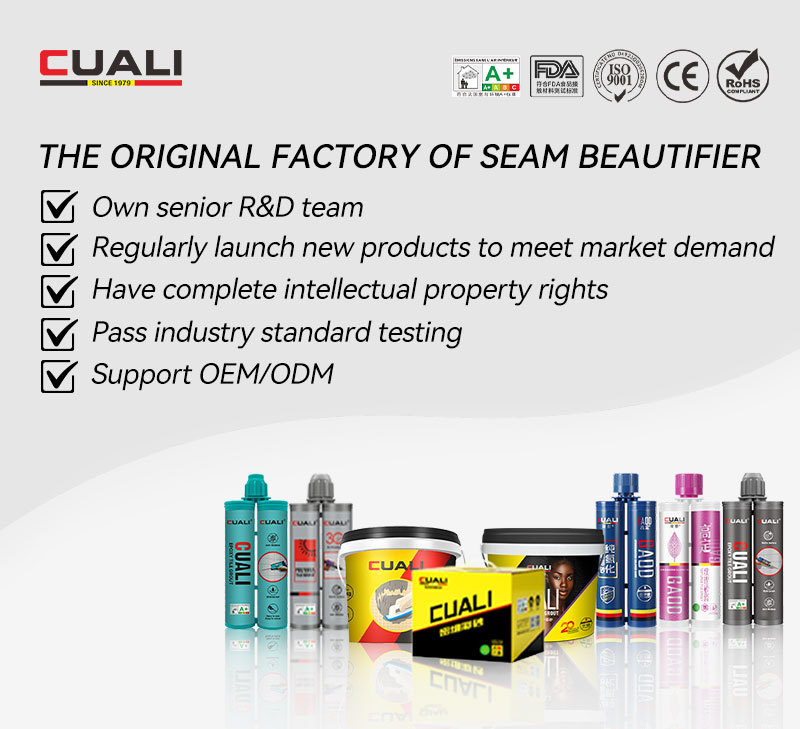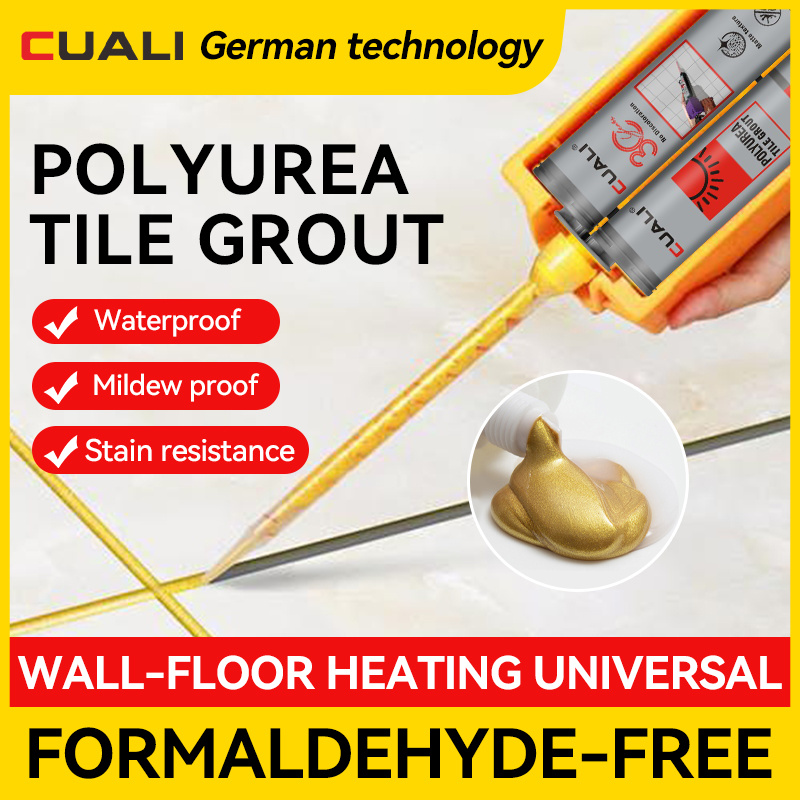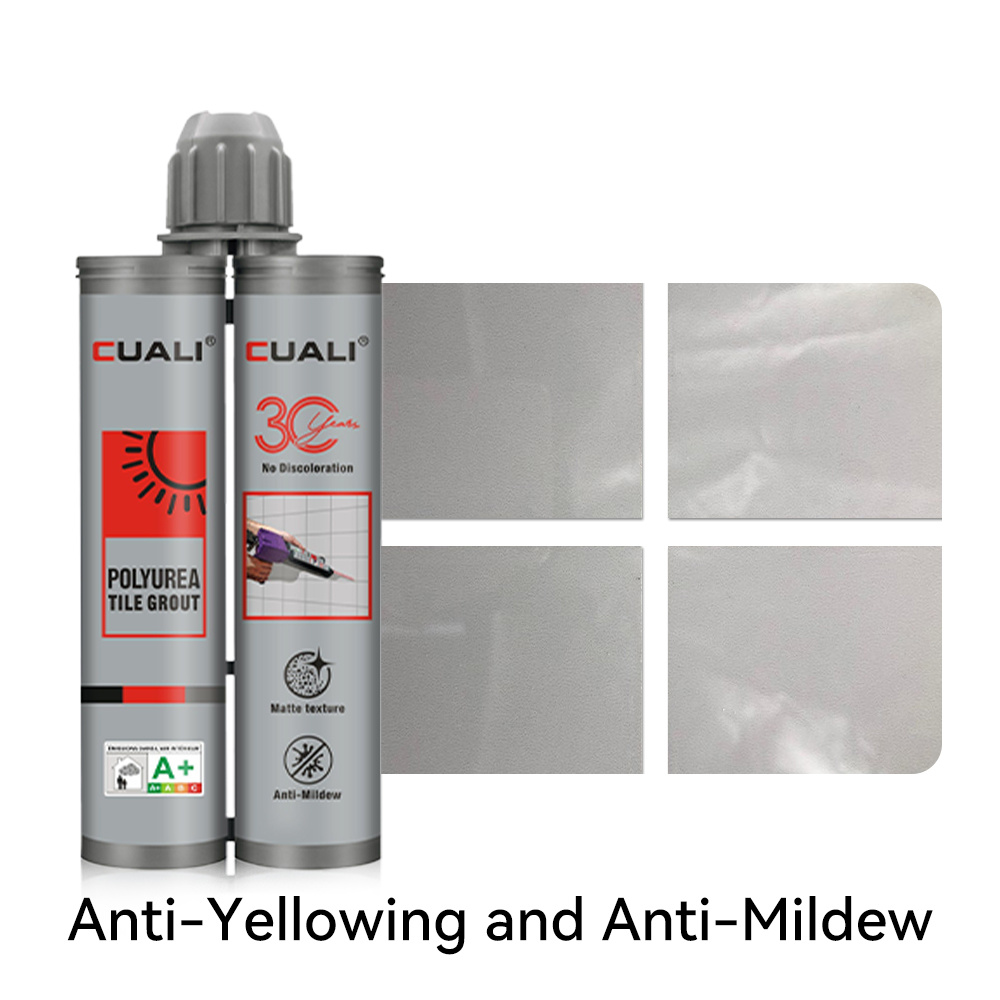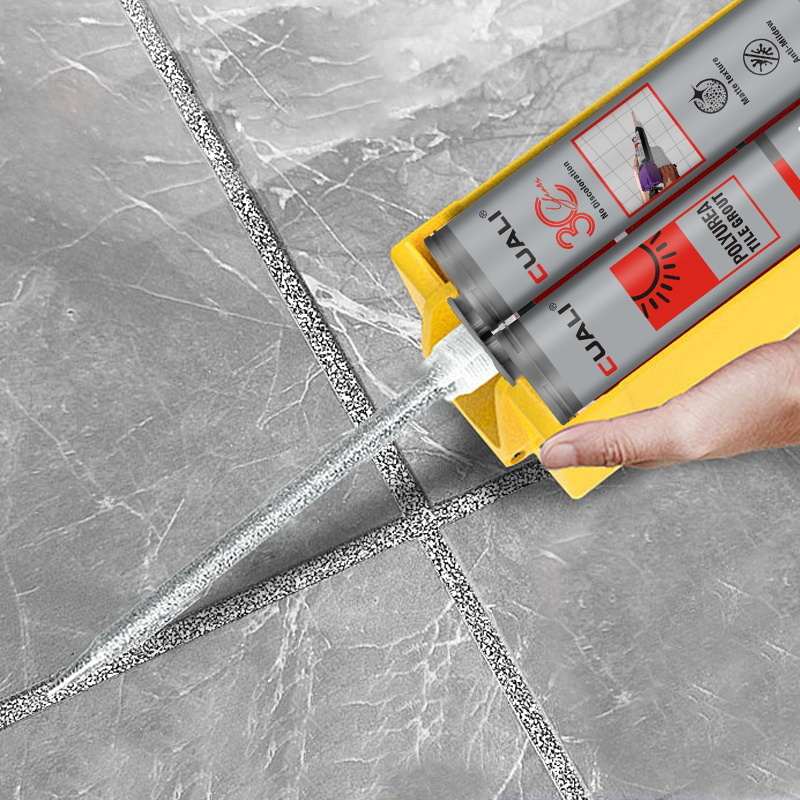
How to Choose Grout for Renovation
Have you ever struggled during renovation: "Should I use epoxy sanded grout, regular grout, polyurea grout, or cement grout?" With so many recommendations out there, it’s easy to feel overwhelmed. Choose the wrong one, and you’ll waste money; even if you pick one that seems right, you might worry it won’t last.
Today, we’ll break it down: The type of grout you need depends on your renovation style. Follow this guide, and you’ll avoid mistakes!
01 For Kitchens: Choose Polyurea Grout, Not Epoxy Sanded Grout
What’s the key feature of kitchen grout? Stain resistance and easy maintenance! No one wants kitchen grout to turn black and yellow after a while—stubborn stains that won’t come off, forcing you to scrape it all out. What a hassle!
Epoxy sanded grout has a tough, matte texture (made of epoxy resin + quartz sand). It’s less likely to crack, but it’s a "troublemaker" in oily kitchens. Oil stains stick to it like glue, making cleaning a nightmare. Over time, it also yellows easily—so frustrating!
Polyurea grout is perfect for kitchens. While its finish isn’t as smooth as epoxy sanded grout, it has super strong water resistance, making cleaning a breeze. Most importantly, it resists kitchen oil and moisture, so you’ll never stress about dirty grout again.
Also, polyurea grout on the market comes in "pure polyurea" and "semi-polyurea" versions. Don’t be tempted by "cheap" options—pure polyurea is the way to go! Why? Pure polyurea usually has a two-layer seal. Once cured, it has no harsh odors, dries quickly, and lasts ages. Even under long-term sunlight, it won’t discolor. It’s a lifesaver for kitchen newbies!
02 For Glossy Tiles: Water-Based Grout; For Matte Tiles: Polyurea Grout
- Glossy tiles: Pair with water-based grout. It has a shiny finish, is easy to clean, stain-resistant, affordable, and simple to apply. Compared to oil-based grout, water-based grout takes longer to dry, so you’ll need to wait a bit.
- Matte tiles: Go for polyurea grout. It has a 磨砂 texture, resists yellowing, and offers great water resistance.
03 Skip Epoxy Sanded Grout—Use Polyurea Grout Instead
For regular floor grouting, water-based epoxy sanded grout is better than regular grout. It’s hard, wear-resistant, durable, heat- and light-resistant, and less likely to discolor. But it’s slightly pricey and not great at resisting stains.
Regular grout has pros: good stain resistance and water resistance. For bathrooms, though, polyurea grout is better. It resists yellowing—even under long-term outdoor sunlight, it won’t oxidize or discolor. It handles high and low temperatures, balances hardness and flexibility, stays wear-resistant after curing, bonds strongly, and won’t easily fall off.
04 Oil-Based Grout vs. Water-Based Grout
Water-based grout is eco-friendly, dries fast, and is easy to clean, but it’s less durable. Oil-based grout is long-lasting and water-resistant, but it releases more fumes. When using it, make sure the room is well-ventilated and keep it away from fire sources. Keep this in mind when buying!
Summary:
This article guides readers on choosing grout for different scenarios: polyurea grout is ideal for kitchens (resisting oil and stains), water-based grout suits glossy tiles, polyurea works for matte tiles, and key differences between oil-based and water-based grout are explained to help avoid mistakes.
Time:
2025-08-21
More News

